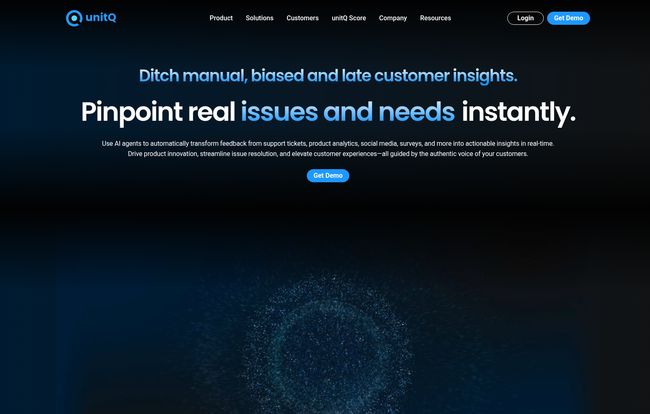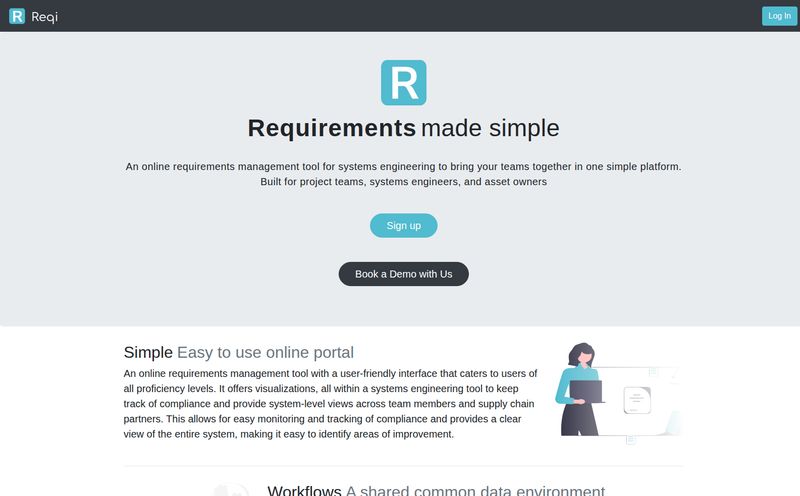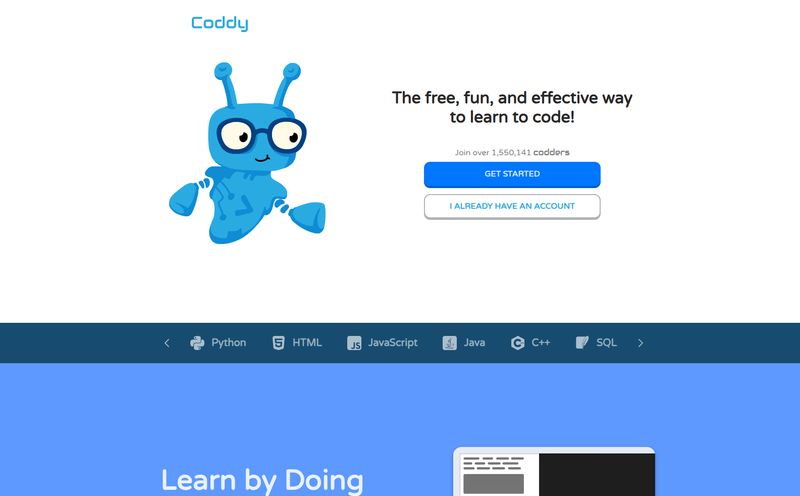If you're in product, engineering, or even customer support, you know the feeling. You're drowning. Absolutely swimming in a sea of user feedback. App Store reviews, angry tweets, Zendesk tickets, Slack messages from the sales team, NPS surveys… it's a torrent of information. And somewhere in that chaotic mess are the golden nuggets, the critical insights that could help you fix that one infuriating bug or build the next killer feature.
But finding them? It’s like trying to find a specific needle in a giant, ever-growing haystack that’s also on fire. For years, we've cobbled together solutions. We've used complex tagging systems, built elaborate spreadsheets that would make an accountant weep, and forced our teams into endless meetings to manually sift through it all. We have more data than ever, but somehow, less clarity.
So when I heard about a platform claiming to be the “world’s first generative AI engine for product quality,” my cynical SEO-blogger senses started tingling. I've seen a lot of tools promise to revolutionize our workflows. Some do. Most don't. But unitQ caught my eye. It’s not just another dashboard; it’s positioned as an AI-powered intelligence engine. So, I decided to take a closer look.
What is unitQ, Really?
At its core, unitQ is a user feedback analysis platform on steroids. It hooks into all the places your customers are talking about you—think App Store, Google Play, Zendesk, Twitter, Discord, Reddit, you name it. Then, it uses AI to not just collect but to understand all that unstructured feedback in real time.
Think of it as a universal translator for your entire user base. It listens to thousands of voices speaking in different ways across different platforms and tells you, in plain english, what they're collectively screaming about. It measures the quality of your product, your services, your entire customer experience, and serves up insights so your team can actually take action instead of just guessing.
The Problem with Our "Frankenstein" Feedback Systems
I've been in those product war rooms. The feedback system is usually a monster stitched together from different parts. A little bit of Jira here, a dash of Slack there, an export from the App Store, and a weekly report from the support team that someone spent half a day compiling. It's a Frankenstein's monster of data. It's clumsy, slow, and often biased by whoever is shouting the loudest.
This manual approach means you’re always playing catch-up. By the time you’ve identified a widespread issue, your one-star reviews have piled up, your support team is burnt out, and your engineers are frustrated. You're reacting to last week's fire, not preventing tomorrow's. This is the exact problem unitQ aims to solve. It wants to ditch the manual, biased, and always-late process and replace it with something autonomous and immediate.

Visit unitQ
How unitQ Turns Noise into Actionable Signals
So, how does it perform this magic trick? It's a multi-step process that feels less like magic and more like some seriously smart engineering. It's not just about dashboards with pretty graphs; it’s about creating a clear path from a single user complaint to a company-wide strategic decision.
From Aggregation to Insight
First, unitQ pulls everything into one place. This alone is a huge win for many teams. No more jumping between ten different tabs. But the real work starts after aggregation. The AI gets to work categorizing, tagging, and analyzing sentiment. It can distinguish between a user being frustrated with a bug in the checkout flow versus someone just having a bad day. It identifies trends as they emerge, not a week later. Are a bunch of users on the latest Android version suddenly experiencing crashes? unitQ will probably know before your support lead has even had their morning coffee.
Meet agentQ: Your Autonomous AI Analyst
This is where things get a bit sci-fi. unitQ has a feature called agentQ, which they describe as an autonomous AI. From what I can gather, this isn't just about passive analysis. agentQ actively monitors the data streams and proactively surfaces critical insights. It's designed to act like a dedicated analyst on your team, working 24/7 to connect the dots. It might spot that a minor bug, when combined with a specific user action, leads to a major customer journey failure. That's the kind of nuanced insight that can take human teams ages to uncover, if they ever do.
More Than Just Bug Reports
While fixing what's broken is a huge part of product quality, it's not the whole picture. unitQ also provides tools for competitive analysis and customer journey mapping. You can monitor what users are saying about your competitors' products, identifying their weaknesses and opportunities for you to get ahead. By analyzing the entire customer journey, you can see where friction exists and proactively smooth it out, improving things like user onboarding or feature discovery.
The Real-World Impact: Does It Actually Work?
Okay, this all sounds great on paper. But what about results? The numbers unitQ puts on their homepage are pretty bold. They claim their customers see, on average:
- A 2x increase in customer retention
- A 40% reduction in support tickets
- An 18% increase in NPS
Those aren't small potatoes. A 40% reduction in support tickets doesn't just save money on support overhead; it means the product is fundamentally less frustrating to use. It means engineers are spending less time on reactive bug fixes and more time building new value. An 18% jump in NPS can have a massive impact on organic growth and word-of-mouth marketing. These are the metrics that get executives excited, and for good reason.
Okay, What's the Catch?
No tool is perfect, and I'm always skeptical of a silver bullet. Based on the nature of the platform, there are a few things to consider. Let's call them the "reality checks."
First, this isn't a plug-and-play solution you buy with a credit card. It requires integration with your existing systems. That means some initial setup and configuration is needed. You'll need to grant it access to your Zendesk, your app stores, your Slack, etc. This isn’t necessarily a negative—it’s required for it to work—but it's a hurdle to be aware of.
Second, and this is a big one, the effectiveness of any AI tool like this is heavily dependent on the data it's fed. It’s the classic “Garbage In, Garbage Out” principle. If you have a very small user base or very little feedback coming in, the AI might struggle to find statistically significant trends. It needs a decent volume of data to really work its magic.
This isn't a tool that creates insights out of thin air. It structures and analyzes the insights that are already hidden within your user feedback. Your team still has to build a great product and foster a culture where users are encouraged to give feedback.
Who Is unitQ For (And Who Is It Not For)?
After digging in, I have a pretty clear idea of the ideal unitQ customer. This platform seems tailor-made for mid-to-large scale tech companies that have a significant volume of daily user feedback. Think companies like Spotify, Pinterest, or Glovo (who are listed as customers). These are organizations with dedicated product teams, large engineering departments, and a constant stream of user data that is impossible to manage manually.
It unifies different teams—product, engineering, support, marketing—around a single source of truth about the customer. If your company struggles with silos and teams not being on the same page about user problems, this could be a powerful catalyst for change.
Who is it not for? Probably a very early-stage startup that is still trying to find product-market fit. At that stage, you might have so few users that you can (and should) read every single piece of feedback personally. You dont need an AI to tell you what your first 100 users are thinking. But once you hit a certain scale, that personal touch becomes impossible, and that's the gap unitQ fills.
The Big Question: What About the Price?
Ah, the question everyones thinking. If you browse the unitQ website, you won't find a pricing page. You'll find a "Get Demo" button. This is typical for enterprise-grade SaaS platforms. It means pricing is likely customized based on factors like the volume of feedback data you're processing, the number of data sources you connect, and the size of your user base.
Don't expect a cheap monthly plan. This is a strategic investment. The business case isn't about its cost; it's about its ROI. If it can genuinely deliver on reducing support tickets by 40% and doubling customer retention, it could pay for itself many times over.
Final Thoughts: Is unitQ the Future of Product Quality?
I started this with a healthy dose of skepticism, but I'm walking away genuinely intrigued. The problem unitQ is tackling is one of the most persistent and painful challenges in modern software development. The idea of moving from a reactive, manual feedback process to a proactive, AI-driven one is incredibly appealing.
It's not a magic wand that will instantly solve all your product problems. You still need a talented team to act on the insights it provides. But it could be the thing that finally clears the fog, allowing that team to focus on the right things. It turns the cacophony of user feedback into a clear, actionable signal. And in today's competitive market, being able to listen and react faster than anyone else might just be the ultimate advantage.
Frequently Asked Questions
1. What is unitQ in simple terms?
unitQ is an AI-powered software that automatically collects and analyzes user feedback from many different sources (like app reviews, support tickets, and social media) to give companies real-time insights into their product's quality and what customers want.
2. How does unitQ's AI work?
It uses generative AI and natural language processing to read, understand, and categorize all incoming user feedback. It identifies topics, sentiment, and trends automatically, and its agentQ feature proactively highlights the most critical issues for teams to address.
3. What kind of feedback sources can unitQ analyze?
It can integrate with a wide range of public and private channels, including app stores (Apple App Store, Google Play), helpdesk software (Zendesk, Intercom), social media (Twitter, Reddit), collaboration tools (Slack, Discord), and survey tools.
4. Is unitQ suitable for small businesses?
unitQ is generally better suited for mid-to-large sized companies with a substantial volume of user feedback. A very early-stage startup might not have enough data for the AI to be effective and may not require such a powerful tool yet.
5. Does unitQ replace tools like Jira or Zendesk?
No, it integrates with them. unitQ analyzes the feedback from sources like Zendesk and then helps teams create prioritized tickets in project management tools like Jira. It's designed to make those tools more effective by feeding them better, more accurate information.
6. How do I find out the pricing for unitQ?
unitQ does not list public pricing on their website. Pricing is customized for each business. To get a quote, you need to contact their sales team and request a demo, where they will assess your needs and provide a tailored price.
Reference and Sources
- unitQ Official Website: https://www.unitq.com/



